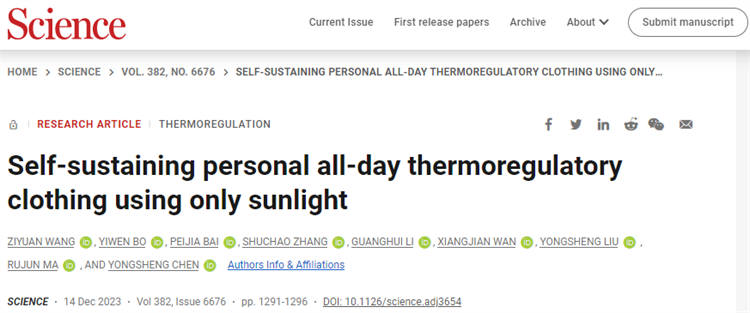
On December 15th, the top international journal Science published the latest research results of Nankai University online. The research topic is "Self sustaining personal all day thermoregulatory clothing using only sunlight". This is the second Science paper published by Nankai University in less than a month. And it is also the third Science paper published by Prof. Yongsheng Chen 's team from the School of Chemistry, Nankai University.
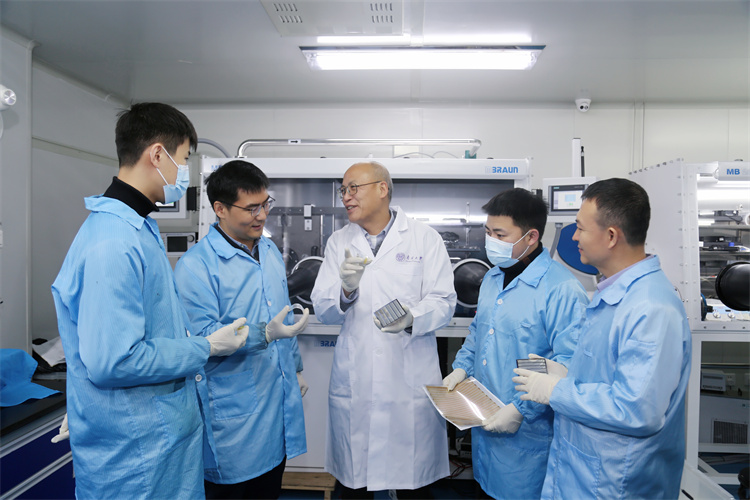
Relatively constant body temperature is one of the important conditions for maintaining normal life and activity in the human body. Clothing plays an important role in regulating human body temperature and maintaining thermal comfort.
In areas with significant temperature differences between day and night or harsh living environments, how to safely, conveniently and efficiently use clothing to keep body temperature within a comfortable temperature range and whether it is possible to develop a daily wearable temperature regulating clothing that can keep the human body within a comfortable temperature range, like spacesuits, are constantly pursued but highly challenging goals.
Prof. Yongsheng Chen from the School of Chemistry, Nankai University, Prof. Rujun Ma from the School of Materials Science and Engineering and Prof. Yongsheng Liu from the School of Chemistry have achieved breakthrough progress in this field.
The team designed and prepared a flexible and sustainable personal temperature regulating clothing system. The system can quickly respond to various extremely complex environmental temperature changes. Through flexible solar devices, the energy of sunlight is used to drive efficient electric card thermal management devices, expanding the thermal comfort zone of the human body from 22-28 °C to 12.5-37.6° C. At the same time, it has low energy consumption and high efficiency. With only 12 hours of solar energy input, it can achieve 24-hour controllable and dual-mode temperature regulation with strong adaptive ability.
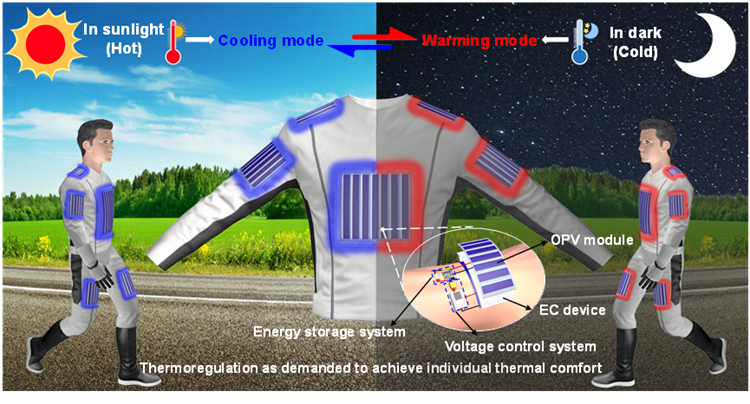
In recent years, although many temperature regulation systems have been developed, they cannot operate for a long time without additional energy input due to issues such as high energy consumption and low efficiency. Their limited energy supply cannot support all-weather and self-sustaining thermal management regulation.
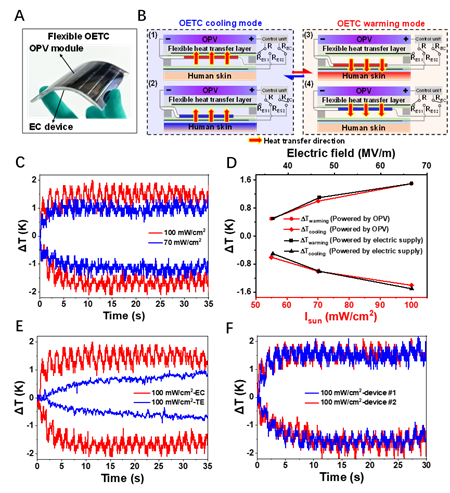
"If we can achieve cooling under the sun, keeping warm in the dark and utilizing unlimited and ubiquitous solar energy to achieve the aforementioned all-weather and self-sustaining human thermal management, our human living space will be greatly expanded," said Prof. Chen.
Based on the previous progress made by the team in flexible solar energy, electric cards, and thermal management (Science 2018, 361, 1094-1098; Science 2017, 357, 1130-1134), they designed and prepared flexible solar cell modules and flexible electric card thermal management modules and organically integrated the two to create a new type of flexible wearable active solar thermal management system to achieving bidirectional active human thermal management. By cooling the human body under sunlight (high temperature) and keeping warm in darkness (low temperature), the temperature range in which the human body can live has been increased by more than three times.
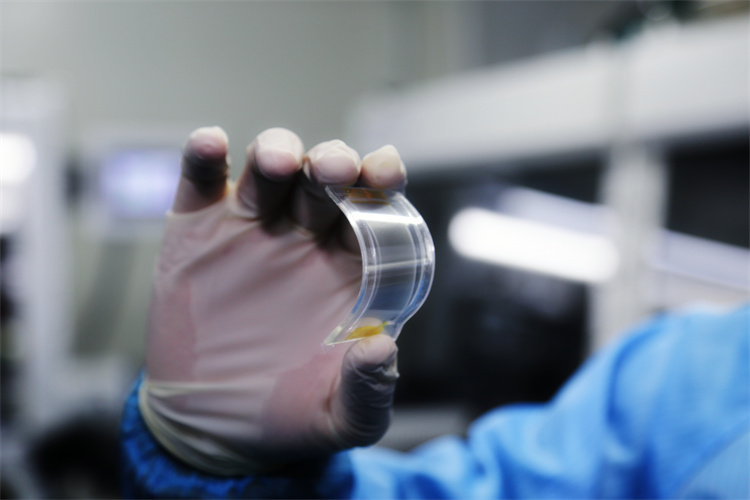
Meanwhile, this new type of solar thermal management system can fully leverage the flexible characteristics of organic solar cells and electric card thermal management devices and integrate them into clothing suitable for human wear, which is both intelligent and does not affect the skin's wearing experience.
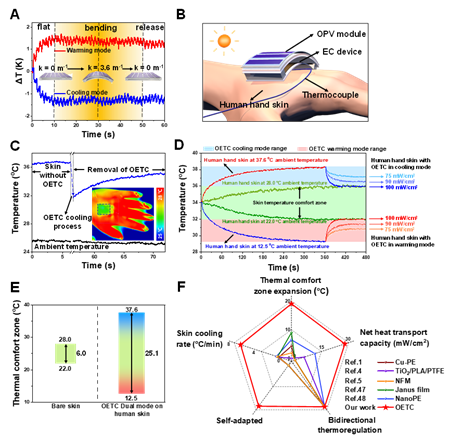
This flexible thermal management clothing can expand the human thermal comfort zone from 6K (22-28℃) to 25.1K (12.5-37.6℃), achieving an improvement of over 300%. It has a simple structure, compact design, high efficiency and only uses sunlight as the sole energy source, making it highly adaptable.
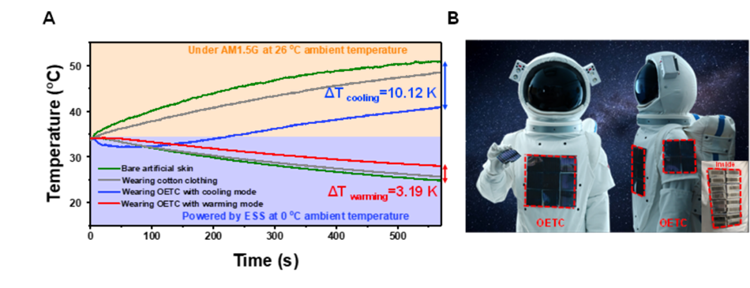
Based on the accumulation of previous research in organic solar energy and electric cards, the team has developed an efficient and proactive bidirectional human flexible thermal management system. This management system has shown potential application prospects in the field of temperature regulation, but there are still many important scientific and technological issues to be solved, such as how to further improve energy efficiency, integrate larger scale clothing, the need to develop new and more efficient solar and card material devices and optimize the integrated device structure.
Prof. Chen said, "We will continue to work hard to further optimize and improve its performance through research and make more contributions to the better utilization of green energy and the improvement of human survival ability in extremely harsh environments such as polar regions and space."

Ziyuan Wang, a doctoral student from the School of Chemistry in 2021, and Yiwen Bo, a doctoral student from the School of Materials Science and Engineering in 2021 are first co-authors of this paper. Prof. Yongsheng Chen is the first corresponding author, Rujun Ma and Yongsheng Liu are co-corresponding authors and the School of Chemistry, Nankai University is the first completion unit.
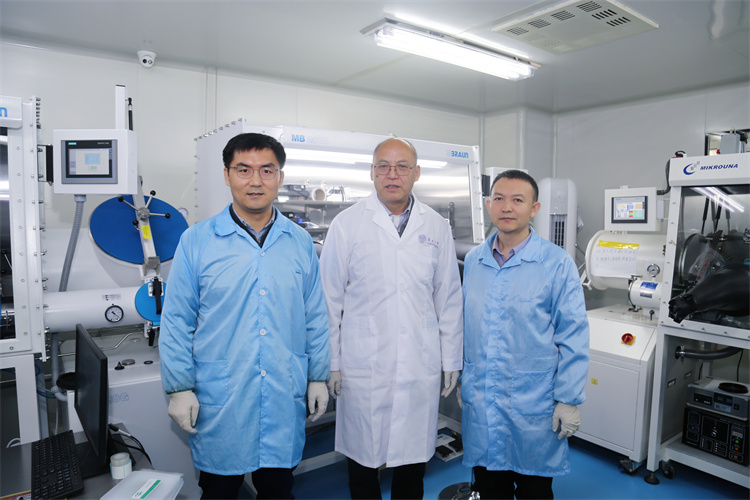
This research has also received support from relevant projects from the Ministry of Science and Technology, the National Natural Science Foundation of China, the Bureau of Science and Technology of Tianjin and Nankai University.
Relevant achievements were published in SCIENCE, 2023, DOI:10.1126/science.adj3654.
https://www.science.org/doi/10.1126/science.adj3654